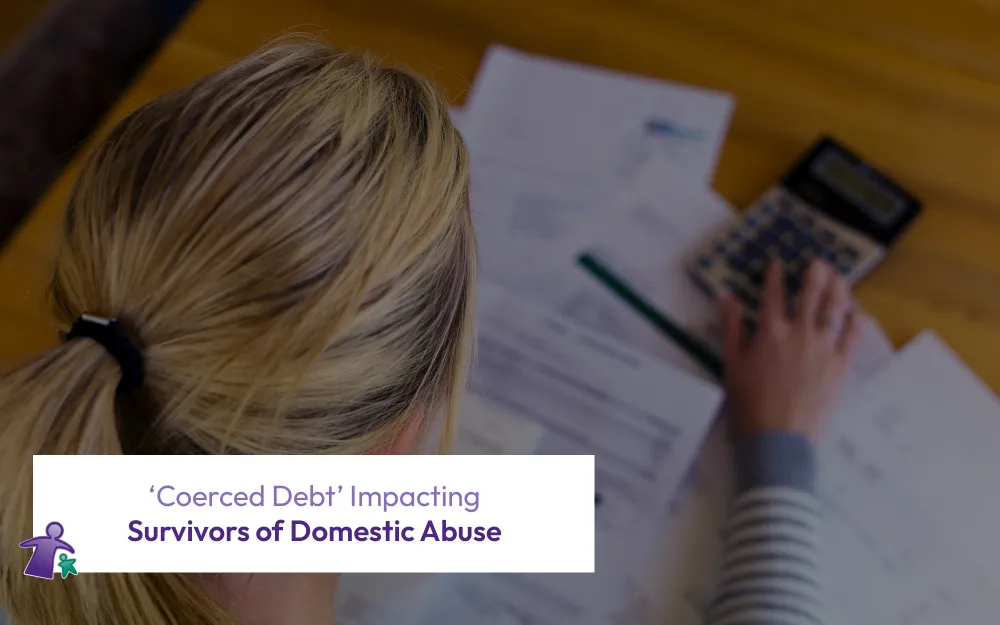
Economic abuse has a massive impact on survivors, often leaving them facing the repercussions many years later, even after their relationship has ended. One form of economic abuse is “Coerced Debt”, where a perpetrator uses controlling behaviour to force a partner into owing money, which is increasingly common for survivors of domestic abuse.
UK debt charity StepChange has released a new report highlighting the impact of this and they estimate that this under-reported issue could be affecting 1.6m people every year. Despite this, there is often very little support available for survivors with devastating impacts in the short and long term.
Coerced Debt Explained
Domestic abuse is centred around power and control, with perpetrators often using any available means to exert their control over their partner, increasing their dependence on them and limiting their access to support networks. Finances are increasingly used as a tool of control by perpetrators, particularly at a time when rising bills and household costs mean that money is tight for many.
Coerced debt can include, but is not limited to, putting mortgages or bills in the victim’s name, convincing them to buy things on a credit card or take out a loan, or demanding that wages are paid into the perpetrator’s account.
StepChange found that around 1 in 8 of their clients were impacted by coerced debt, whether that is at the hands of a current or former partner, family member or friend. Of those that experienced coerced debt, around two-thirds had gone without essentials to keep up with repayments and very few (13%) had any of their debts written off.
StepChange’s wider survey of the public found that 60% of respondents had experienced this but had received no support whatsoever. It is an issue that is impacting people across the country, yet it has not really been addressed and many face the impacts for years afterwards.
The Impact of Economic Abuse
Economic abuse has numerous short-term and long-term impacts, both financially and on mental health and wellbeing too.
In the short-term, it can add barriers to survivors looking to access support, particularly if they are concerned about whether they will have the means to financially support themselves. It can also mean that survivors become increasingly dependent on the perpetrator, cutting them off from support networks such as family and friends.
In the long-term, even after splitting from a partner, it can have a huge impact on survivors, including leaving them paying off debts and negatively impacting their credit score. This can mean that survivors have difficulties buying or renting a house, impacting their ability to fully move on.
Despite how common coerced debt is, survivors still face uncertainty and difficulties in achieving economic safety and stability.
Leeway provides regular Domestic Abuse Awareness training sessions for individuals, businesses, and organisations, to help them spot the signs of domestic abuse and confidently respond to it. We also provide bespoke sessions to meet the specific needs of an organisation. For more information, visit our Training page.